- Home
- Daniel Defoe
A Journal of the Plague Year Page 15
A Journal of the Plague Year Read online
Page 15
This was the Case with us at that Time, and had not the Sums of Money, contributed in Charity by well disposed People, of every Kind, as well abroad as at home, been prodigiously great, it had not been in the Power of the Lord Mayor and Sheriffs, to have kept the Publick Peace; nor were they without Apprehensions as it was, that Desperation should push the People upon Tumults, and cause them to rifle the Houses of rich Men, and plunder the Markets of Provisions; in which Case the Country People, who brought Provisions very freely and boldly to Town, would ha’ been Terrified from coming any more, and the Town would ha’ sunk under an unavoidable Famine.
But the Prudence of my Lord Mayor, and the Court of Aldermen within the City, and of the Justices of Peace in the Out-parts was such, and they were supported with Money from all Parts so well, that the poor People were kept quiet, and their Wants every where reliev’d, as far as was possible to be done.
Two Things, besides this, contributed to prevent the Mob doing any Mischief: One was, that really the Rich themselves had not laid up Stores of Provisions in their Houses, as indeed, they ought to have done, and which if they had been wise enough to have done, and lock’d themselves entirely up, as some few did, they had perhaps escaped the Disease better: But as it appear’d they had not, so the Mob had no Notion of finding Stores of Provisions there, if they had broken in, as it is plain they were sometimes very near doing, and which, if they had, they had finish’d the Ruin of the whole City, for there were no regular Troops to ha’ withstood them, nor could the Traind-Bands have been brought together to defend the City, no Men being to be found to bear Arms.
But the Vigilance of the Lord Mayor, and such Magistrates as could be had, for some, even of the Aldermen were Dead, and some absent, prevented this; and they did it by the most kind and gentle Methods they could think of, as particularly by relieving the most desperate with Money, and putting others into Business, and particularly that Employment of watching Houses that were infected and shut up; and as the Number of these were very great, for it was said, there was at one Time, ten thousand Houses shut up, and every House had two Watchmen to guard it, viz one by Night, and the other by Day; this gave Opportunity to employ a very great Number of poor Men at a Time.
The Women, and Servants, that were turned off from their Places, were likewise employed as Nurses to tend the Sick in all Places; and this took off a very great Number of them.
And, which tho’ a melancholy Article in it self, yet was a Deliverance in its Kind, namely, the Plague which raged in a dreadful Manner from the Middle of August to the Middle of October, carried off in that Time thirty or forty Thousand* of these very People, which had they been left, would certainly have been an unsufferable Burden, by their Poverty, that is to say, the whole City could not have supported the Expence of them, or have provided Food for them; and they would in Time have been even driven to the Necessity of plundering either the City it self, or the Country adjacent, to have subsisted themselves, which would first or last, have put the whole Nation, as well as the City, into the utmost Terror and Confusion.
It was observable then, that this Calamity of the People made them very humble; for now, for about nine Weeks together, there died near a thousand a-Day, one Day with another, even by the Account of the weekly Bills, which yet I have Reason to be assur’d never gave a full Account, by many thousands; the Confusion being such, and the Carts working in the Dark, when they carried the Dead, that in some Places no Account at all was kept, but they work’d on; the Clerks and Sextons not attending for Weeks together, and not knowing what Number they carried. This Account is verified by the following Bills of Mortality.
So that the Gross of the People were carried off in these two Months; for as the whole Number which was brought in, to die of the Plague, was but 68590 here, is fifty thousand of them, within a Trifle, in two Months; I say 50000, because, as there wants 295 in the Number above, so there wants two Days of two Months, in the Account of Time.
Now when, I say, that the Parish Officers did not give in a full Account, or were not to be depended upon for their Account, let any one but consider how Men could be exact in such a Time of dreadful Distress, and when many of them were taken sick themselves, and perhaps died in the very Time when their Accounts were to be given in, I mean the Parish-Clerks; besides inferior Officers; for tho’ these poor Men ventured at all Hazards, yet they were far from being exempt from the common Calamity, especially, if it be true, that the Parish of Stepney had within the Year, one hundred and sixteen Sextons, Grave-diggers, and their Assistants, that is to say, Bearers, Bell-men, and Drivers of Carts, for carrying off the dead Bodies.
Indeed the Work was not of a Nature to allow them Leisure, to take an exact Tale of the dead Bodies, which were all huddled together in the Dark into a Pit; which Pit, or Trench, no Man could come nigh, but at the utmost Peril. I observ’d often, that in the Parishes of Aldgate, and Cripplegate, White-Chappel and Stepney, there was five, six, seven, and eight hundred in a Week, in the Bills, whereas if we may believe the Opinion of those that liv’d in the City, all the Time, as well as I, there died sometimes 2000 a-Week in those Parishes; and I saw it under the Hand of one, that made as strict an examination into that Part as he could, that there really died an hundred thousand People of the Plague, in it that one Year, whereas the Bills, the Articles of the Plague, was but 68590.
If I may be allowed to give my Opinion, by what I saw with my Eyes, and heard from other People that were Eye Witnesses, I do verily believe the same, viz. that there died, at least, 100000 of the Plague only, besides other Distempers, and besides those which died in the Fields, and High-ways, and secret Places, out of the Compass of the Communication, as it was called; and who were not put down in the Bills, tho’ they really belonged to the Body of the Inhabitants. It was known to us all, that abundance of poor despairing Creatures, who had the Distemper upon them, and were grown stupid, or melancholly by their Misery, as many were, wandred away into the Fields, and Woods, and into secret uncouth Places, almost any where to creep into a Bush, or Hedge, and DIE.
The Inhabitants of the Villages adjacent would in Pity, carry them Food, and set it at a Distance, that they might fetch it, if they were able, and sometimes they were not able; and the next Time they went, they should find the poor Wretches lie dead, and the Food untouch’d. The Number of these miserable Objects were many, and I know so many that perish’d thus, and so exactly where, that I believe I could go to the very Place and dig their Bones up still; for the Country People would go and dig a Hole at a Distance from them, and then with long Poles, and Hooks at the End of them, drag the Bodies into these Pits, and then throw the Earth in Form as far as they could cast it to cover them; taking notice how the Wind blew, and so coming on that Side which the Sea-men call to-Wind-ward, that the Scent of the Bodies might blow from them; and thus great Numbers went out of the World, who were never known or any Account of them taken, as well within the Bills of Mortality as without.
This indeed I had, in the main, only from the Relation of others; for I seldom walk’d into the Fields, except towards Bednal-green and Hackney; or as hereafter: But when I did walk I always saw a great many poor Wanderers at a Distance, but I could know little of their Cases; for whether it were in the Street, or in the Fields, if we had seen any Body coming, it was a general Method to walk away; yet I believe the Account is exactly true.
As this puts me upon mentioning my walking the Streets and Fields, I cannot omit taking notice what a desolate Place the City was at that Time: The great Street I liv’d in, which is known to be one of the broadest of all the Streets of London, I mean of the Suburbs as well as the Liberties; all the Side where the Butchers lived, especially without the Bars was more like a green Field than a paved Street, and the People generally went in the middle with the Horses and Carts: It is true, that the farthest End towards White-Chappel Church, was not all pav’d, but even the Part that was pav’d was full of Grass also; but this need not seem strange since the great Streets with
in the City, such as Leaden-hall-Street, Bishop-gate-Street, Cornhill, and even the Exchange it self, had Grass growing* in them, in several Places; neither Cart or Coach were seen in the Streets from Morning to Evening, except some Country Carts to bring Roots and Beans, or Pease, Hay and Straw, to the Market, and those but very few, compared to what was usual: As for Coaches they were scarce used, but to carry sick People to the Pest-House, and to other Hospitals; and some few to carry Physicians to such Places as they thought fit to venture to visit; for really Coaches were dangerous things,* and People did not Care to venture into them, because they did not know who might have been carried in them last; and sick infected People were, as I have said, ordinarily carried in them to the Pest-Houses, and sometimes People expired in them as they went along.
It is true, when the Infection came to such a Height as I have now mentioned, there were very few Physicians, which car’d to stir abroad to sick Houses, and very many of the most eminent of the Faculty were dead as well as the Surgeons also, for now it was indeed a dismal time, and for about a Month together, not taking any Notice of the Bills of Mortality, I believe there did not die less than 1500 or 1700 a-Day, one Day with another.
One of the worst Days we had in the whole Time, as I thought, was in the Beginning of September, when indeed good People began to think, that God was resolved to make a full End of the People in this miserable City. This was at that Time when the Plague was fully come into the Eastern Parishes: The Parish of Aldgate, if I may give my Opinion buried above a thousand a Week for two Weeks, tho’ the Bills did not say so many; but it surrounded me at so dismal a rate, that there was not a House in twenty uninfected; in the Minories, in Houndsditch, and in those Parts of Aldgate Parish about the Butcher-Row, and the Alleys over against me, I say in those places Death reigned in every Corner. White Chapel Parish was in the same Condition, and tho’ much less than the Parish I liv’d in; yet bury’d near 600 a Week by the Bills; and in my Opinion, near twice as many; whole Families, and indeed, whole Streets of Families were swept away together; insomuch, that it was frequent for Neighbours to call to the Bellman, to go to such and such Houses, and fetch out the People, for that they were all Dead.
And indeed, the Work of removing the dead Bodies by Carts, was now grown so very odious and dangerous, that it was complain’d of, that the Bearers did not take Care to clear such Houses, where all the Inhabitants were dead; but that sometimes the Bodies lay several Days unburied, till the neighbouring Families were offended with the Stench, and consequently infect’d; and this neglect of the Officers was such, that the Church Wardens and Constables were summon’d to look after it; and even the Justices of the Hamlets, were oblig’d to venture their Lives among them, to quicken and encourage them; for innumerable of the Bearers dy’d of the Distemper, infected by the Bodies they were oblig’d to come so near; and had it not been, that the Number of poor People who wanted Employment, and wanted Bread, (as I have said before,) was so great, that Necessity drove them to undertake any Thing, and venture any thing, they would never have found People to be employ’d; and then the Bodies of the dead would have lain above Ground, and have perished and rotted in a dreadful Manner.
But the Magistrates cannot be enough commended in this, that they kept such good Order for the burying of the Dead, that as fast as any of those they employ’d to carry off, and bury the dead, fell sick or dy’d, as was many Times the Case, they immediately supply’d the places with others; which by reason of the great Number of Poor that was left out of Business, as above, was not hard to do: This occasion’d, that notwithstanding the infinite Number of People which dy’d, and were sick almost all together, yet, they were always clear’d away, and carry’d off every Night; so that it was never to be said of London, that the living were not able to bury the Dead.
As the Desolation was greater, during those terrible Times, so the Amazement of the People encreas’d; and a thousand unaccountable Things they would do in the violence of their Fright, as others did the same in the Agonies of their Distemper, and this part was very affecting; some went roaring, and crying, and wringing their Hands along the Street; some would go praying, and lifting up their Hands to Heaven, calling upon God for Mercy. I cannot say indeed, whether this was not in their Distraction; but be it so, it was still an indication of a more serious Mind, when they had the use of their Senses, and was much better, even as it was, than the frightful yellings and cryings that every Day, and especially in the Evenings, were heard in some Streets. I suppose the World has heard of the famous Soloman Eagle an Enthusiast:* He tho’ not infected at all, but in his Head, went about denouncing of Judgment upon the City in a frightful manner; sometimes quite naked, and with a Pan of burning Charcoal on his Head: What he said or pretended, indeed I could not learn.
I will not say, whether that Clergyman was distracted or not: Or whether he did it in pure Zeal for the poor People who went every Evening thro’ the Streets of White-Chapel; and with his Hands lifted up, repeated that Part of the Liturgy of the Church continually; Spare us good Lord, spare thy People whom thou hast redeemed with thy most precious Blood, I say, I cannot speak positively of these Things; because these were only the dismal Objects which represented themselves to me as I look’d thro’ my Chamber Windows (for I seldom opened the Casements) while I confin’d my self within Doors, during that most violent rageing of the Pestilence; when indeed, as I have said, many began to think, and even to say, that there would none escape; and indeed, I began to think so too; and therefore kept within Doors, for about a Fortnight, and never stirr’d out: But I cou’d not hold it: Besides, there were some People, who notwithstanding the Danger, did not omit publickly to attend the Worship of God,* even in the most dangerous Times; and tho’ it is true, that a great many Clergymen did shut up their Churches, and fled as other People did, for the safety of their Lives; yet, all did not do so, some ventur’d to officiate, and to keep up the Assemblies of the People by constant Prayers; and sometimes Sermons, or Brief Exhortations to Repentance and Reformation, and this as long as any would come to hear them; and Dissenters did the like also, and even in the very Churches,* where the Parish Ministers were either Dead or fled, nor was there any Room for making Difference, at such a Time as this was.
It was indeed a lamentable Thing to hear the miserable Lamentations of poor dying Creatures, calling out for Ministers to Comfort them, and pray with them, to Counsel them, and to direct them, calling out to God for Pardon and Mercy, and confessing aloud their past Sins. It would make the stoutest Heart bleed to hear how many Warnings were then given by dying Penitents, to others not to put off and delay their Repentance to the Day of Distress, that such a Time of Calamity as this, was no Time for Repentance; was no Time to call upon God. I wish I could repeat the very Sound of those Groans, and of those Exclamations that I heard from some poor dying Creatures, when in the Hight of their Agonies and Distress; and that I could make him that read this hear, as I imagine I now hear them, for the Sound seems still to Ring in my Ears.
If I could but tell this Part, in such moving Accents as should alarm the very Soul of the Reader, I should rejoice that I recorded those Things, however short and imperfect.
It pleased God that I was still spar’d, and very hearty and sound in Health, but very impatient of being pent up within Doors without Air, as I had been for 14 Days or thereabouts; and I could not restrain my self, but I would go to carry a Letter for my Brother to the Post-House; then it was indeed, that I observ’d a profound Silence in the Streets; when I came to the Post-House, as I went to put in my Letter, I saw a Man stand in one Corner of the Yard, and talking to another at a Window; and a third had open’d a Door belonging to the Office; In the middle of the Yard lay a small Leather Purse, with two Keys hanging at it, and Money in it, but no Body would meddle with it: I ask’d how long it had lain there; the Man at the Window said, it had lain almost an Hour; but that they had not meddled with it, because they did not know, but the Person who dropt it, might come back to look for
it. I had no such need of Money, nor was the Sum so big, that I had any Inclination to meddle with it, or to get the Money at the hazard it might be attended with; so I seem’d to go away, when the Man who had open’d the Door, said he would take it up; but so, that if the right Owner came for it, he should be sure to have it: So he went in, and fetched a pail of Water, and set it down hard by the Purse; then went again, and fetch’d some Gun-powder, and cast a good deal of Powder upon the Purse, and then made a Train from that which he had thrown loose upon the Purse; the train reached about two Yards; after this he goes in a third Time, and fetches out a pair of Tongs red hot, and which he had prepar’d, I suppose on purpose; and first setting Fire to the Train of Powder, that sing’d the Purse and also smoak’d the Air sufficiently: But he was not content with that; but he then takes up the Purse with the Tongs, holding it so long till the Tongs burnt thro’ the Purse, and then he shook the Money out into the Pail of Water, so he carried it in. The Money, as I remember, was about thirteen Shillings, and some smooth Groats, and Brass Farthings.
There might perhaps, have been several poor People, as I have observed above, that would have been hardy enough to have ventured for the sake of the Money; but you may easily see by what I have observ’d, that the few People, who were spar’d, were very careful of themselves, at that Time when the Distress was so exceeding great.
Much about the same Time I walk’d out into the Fields towards Bow; for I had a great mind to see how things were managed in the River, and among the Ships; and as I had some Concern in Shipping, I had a Notion that it had been one of the best Ways of securing ones self from the Infection to have retir’d into a Ship, and musing how to satisfy my Curiosity, in that Point, I turned away over the Fields, from Bow to Bromley, and down to Blackwall, to the Stairs, which are there for landing, or taking Water.

 Captain Singleton
Captain Singleton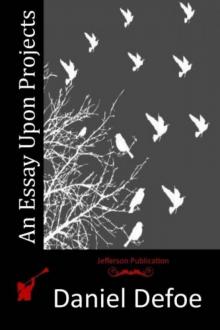 An Essay Upon Projects
An Essay Upon Projects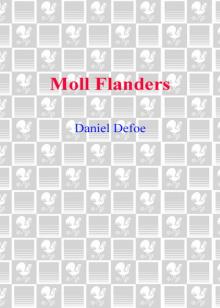 Moll Flanders Moll Flanders Moll Flanders
Moll Flanders Moll Flanders Moll Flanders The Further Adventures of Robinson Crusoe
The Further Adventures of Robinson Crusoe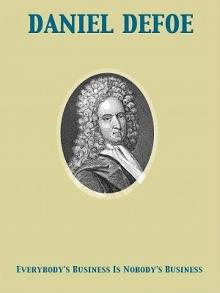 Everybody's Business Is Nobody's Business
Everybody's Business Is Nobody's Business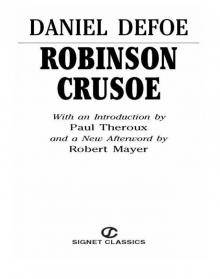 Robinson Crusoe
Robinson Crusoe The Storm
The Storm The King of Pirates
The King of Pirates History of the Plague in London
History of the Plague in London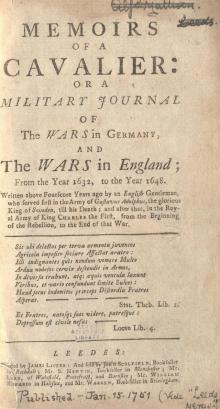 Memoirs of a Cavalier
Memoirs of a Cavalier_preview.jpg) The Life and Most Surprising Adventures of Robinson Crusoe, of York, Mariner (1801)
The Life and Most Surprising Adventures of Robinson Crusoe, of York, Mariner (1801)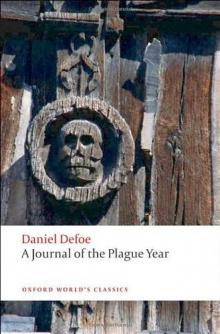 A Journal of the Plague Year
A Journal of the Plague Year_preview.jpg) The Life and Adventures of Robinson Crusoe (1808)
The Life and Adventures of Robinson Crusoe (1808)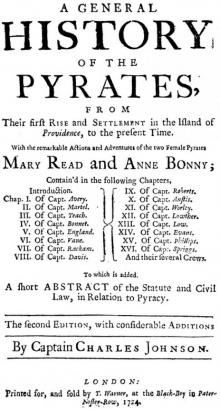 A General History of the Pyrates: / from their first rise and settlement in the island of Providence, to the present time
A General History of the Pyrates: / from their first rise and settlement in the island of Providence, to the present time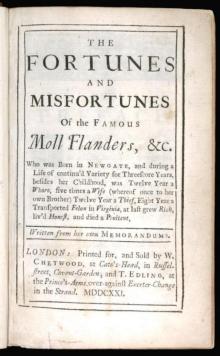 The Fortunes and Misfortunes of the Famous Moll Flanders
The Fortunes and Misfortunes of the Famous Moll Flanders_preview.jpg) The Fortunate Mistress (Parts 1 and 2)
The Fortunate Mistress (Parts 1 and 2)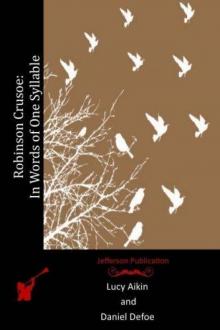 Robinson Crusoe — in Words of One Syllable
Robinson Crusoe — in Words of One Syllable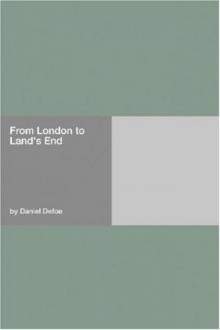 From London to Land's End
From London to Land's End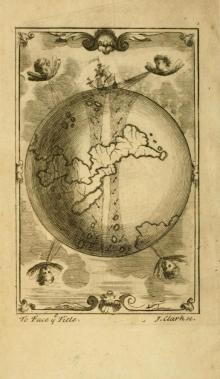 A New Voyage Round the World by a Course Never Sailed Before
A New Voyage Round the World by a Course Never Sailed Before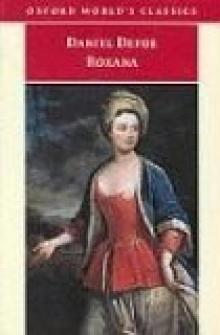 Roxana
Roxana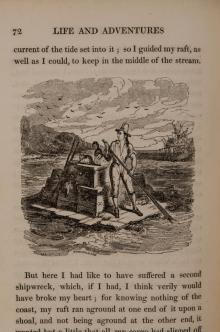 The Life and Adventures of Robinson Crusoe of York, Mariner, Volume 1
The Life and Adventures of Robinson Crusoe of York, Mariner, Volume 1_preview.jpg) Memoirs of Major Alexander Ramkins (1718)
Memoirs of Major Alexander Ramkins (1718) Dickory Cronke
Dickory Cronke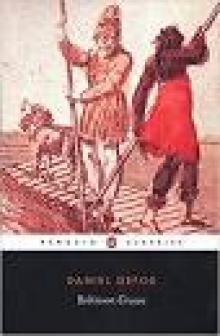 Robinson Crusoe (Penguin ed.)
Robinson Crusoe (Penguin ed.)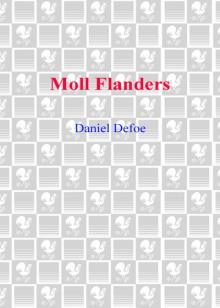 Moll Flanders
Moll Flanders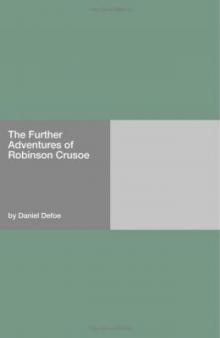 The Further Adventures of Robinson Crusoe rc-2
The Further Adventures of Robinson Crusoe rc-2